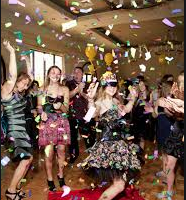Joan Leegant: Strange Pairings
A rabbi whose encounter with a pair of Siamese twins rocks his world and his faith. A father whose life of hard work and devotion is utterly undone by his charming, perfidious son. Three sisters—one Hindu, one Orthodox Jew and one an actress of no particular persuasion (but trying to keep her head above water)—all receive a chance at happiness through the intervention of a loving, unseen hand. These are just some scenarios that play out with humor, grace and a sense of divine mystery hovering just beyond their horizons in Joan Leegant’s much heralded but collection of stories. An Hour in Paradise (W.W. Norton, $23.95).
Leegant, once a lawyer, is an expert at unexpected pairings, her mismatched characters—a smug Russian emigre and the suburban neighbor he manages to torment, an arrogant young American and the Germanic, blonde tourist he meets on his search for kabba list mysteries in Safed, the former drug-dealer-turned-yeshiva-boyand the dying AIDS patient he is trying to comfort—all have a way of turning their particular light on one another. The result is a more crisply delineated view of each. And Leegant’s engaging blend of skepticism and faith, sharp-eyed observation and magical intervention makes this group of 10 stories shimmer with a wholly original brand of reverence and belief.
Yet Leegant did not grow up immersed in the tenets and trappings of her faith. Her parents were second-generation Americans who, like many of their era, wanted to get away from what they perceived as a narrow parochialism.
As a teenager, she had an attraction to things Jewish, and began going to Friday night services alone, even joining the synagogue choir, which was otherwise comprised of adults. When she went off to college, however, she was not interested in Judaism. “It seemed too prescriptive and confining, in the heady late 60s, early 70s of my college years,” she said in a recent phone interview from her home in Newton, Massachusetts. But in her late twenties, in a turn worthy of one of her own short stories, Leegant went to Israel, studied at Pardes, a progressive yeshiva, and for several years became quite observant, living on the fringes of a ba’al tshuva community.
Striking in this collection is the number of men who drive the stories. “Actually, for a long time I was more at home writing male protagonists than female ones, “she notes. ‘T think I had more distance on men and was therefore more able to write about them, more confident that I could write the stories artfully. I have also shied away from autobiographical writing, so 1think that’s another reason I’ve liked writing about male characters: because they can’t possibly be me.”
But Leegant moves with ease from one fictional voice to another. Boaz, a kibbutznik, remembers his wife, now dead, in “The Seventh Year.” “He closed his eyes and saw her then: a borrowed yellow dress, her dark hair unbraided, and red lips; she must have found a lipstick. Then afterward, juice and cookies, a pilfered bottle of Scotch, some singing and dancing in the parched field behind the chicken houses.” Somehow, the picture of the bride is as vivid as the mournful man who remembers her.
Leegant’s path to writing was, as she describes it, almost accidental. “One day 1had gotten a babysitter for my sons, then about 5 and 3, so I could go to the local JCC to swim. But when I got there, the pool was closed. What to do? Two hours of precious babysitting time, and I’m not much of a shopper, so I looked to see what else was happening at the JCC at that hour, and lo and behold, it was a writing group. I stayed with that wonderful group for a year and eventually began writing fiction.”
Lucky for us.


